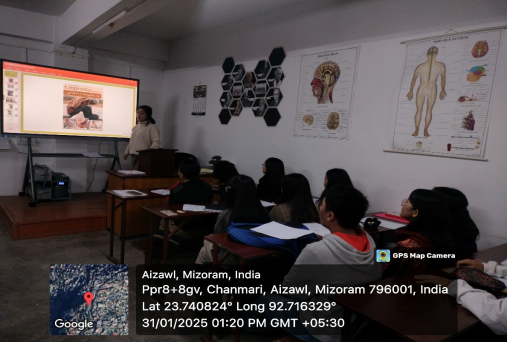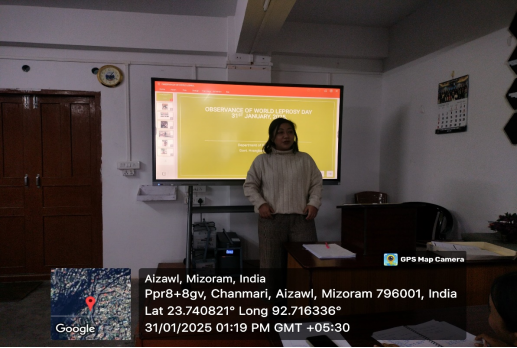OBSERVANCE OF WORLD LEPROSY DAY
On 31st January 2025, the Department of Psychology observed World Leprosy Day at the department’s Core Room to raise awareness about leprosy and its impact on individuals and society. The event was attended by 37 students, who actively participated in discussions and gained valuable insights into the disease.
The Resource Person, Miss Lalparmawii Khiangte, delivered an informative session on leprosy, explaining its causes, symptoms, and treatment. She emphasized the physical, psychological, and social challenges faced by individuals affected by the disease. The session highlighted the importance of early detection, medical treatment, and the need to eliminate stigma and discrimination associated with leprosy.
Miss Khiangte also addressed the mental health impact of the disease, stressing the emotional distress and social isolation that many affected individuals experience. She encouraged students to develop empathy and advocate for awareness, emphasizing that leprosy is a curable disease and that individuals affected by it deserve dignity and inclusion in society.
The programme concluded with an interactive discussion, where students asked insightful questions and expressed their thoughts on how society can contribute to leprosy awareness and rehabilitation efforts. The observance of World Leprosy Day served as a meaningful initiative to educate and sensitize students about the medical, psychological, and social aspects of the disease, reinforcing the importance of compassion, awareness, and action in combating stigma.
Objective of the Programme
- · To raise awareness about leprosy, its causes, symptoms, and treatment.
- · To educate students on the physical, psychological, and social challenges faced by individuals affected by leprosy.
- · To promote early detection, treatment, and the elimination of stigma and discrimination associated with the disease.
- · To encourage students to develop empathy, compassion, and advocacy for leprosy-affected individuals.
Outcome of the Programme
- · Students gained a deeper understanding of leprosy beyond its medical aspects, including the social and psychological impact on affected individuals.
- · The programme helped in dispelling myths and misconceptions about leprosy, reducing stigma through awareness and education.
- · Participants became more empathetic toward individuals affected by leprosy and were encouraged to advocate for inclusion and social support.
- · The interactive discussion at the end of the session allowed students to ask thought-provoking questions, enhancing their knowledge and sensitivity towards leprosy-related issues.


Attachment

















